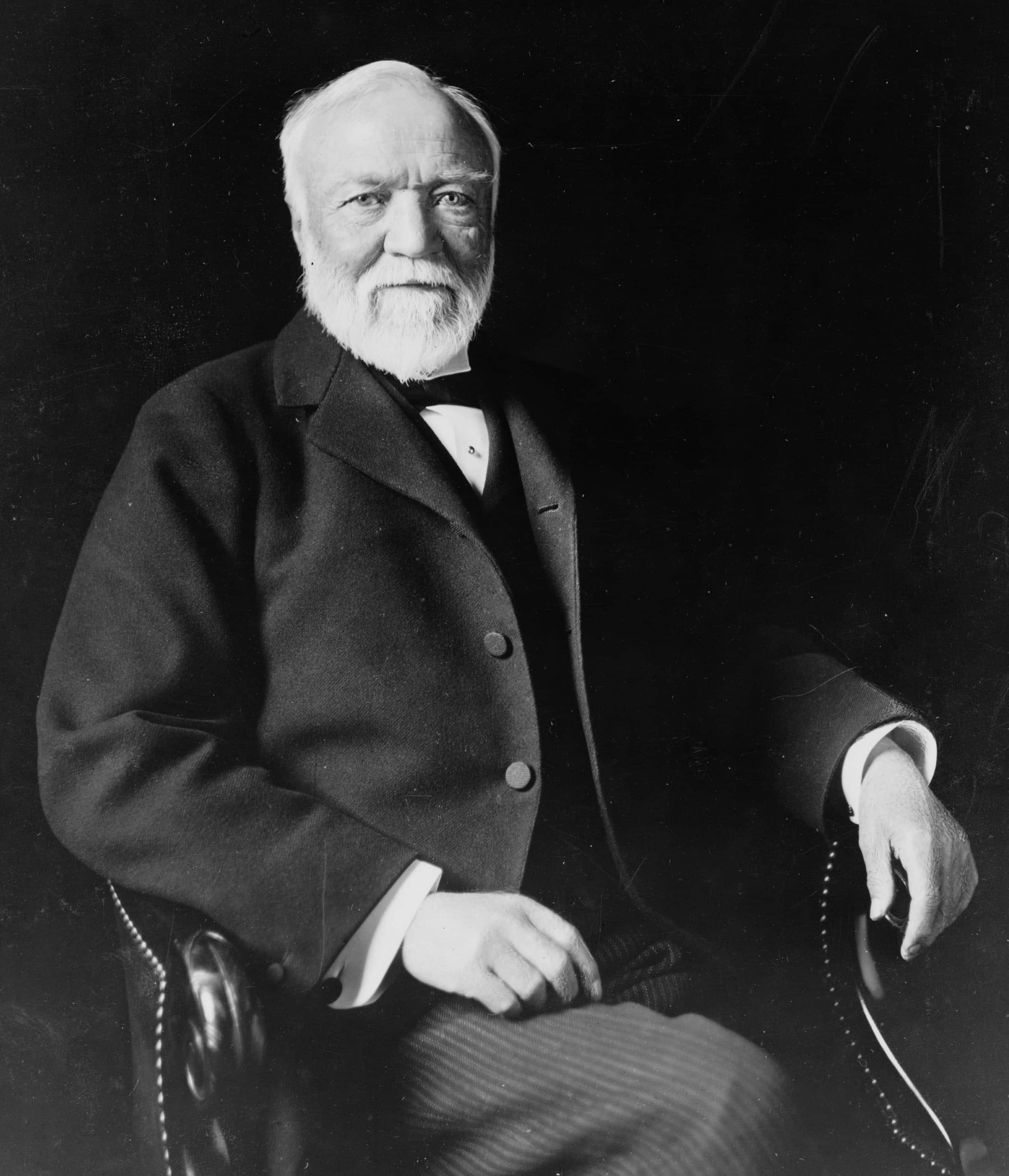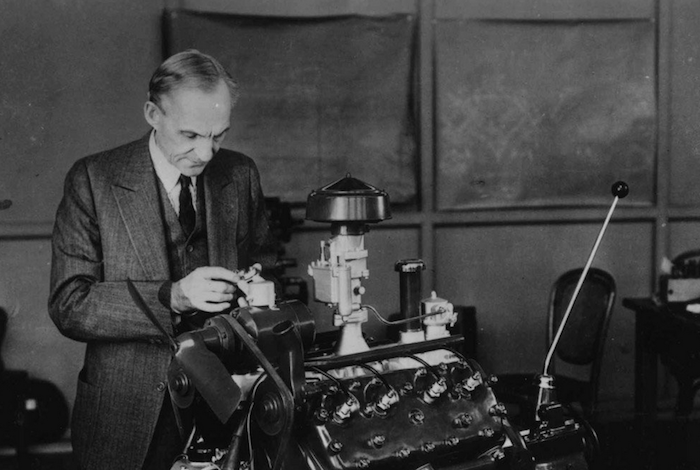Andrew Carnegie, 1835-1919

People who are unable to motivate themselves must be content with mediocrity, no matter how impressive their other talents.
Carnegie represents the epitome of the self-made man. His father was a Scottish hand-loom weaver, who moved with his family to America when Andrew was 13. Carnegie’s first job was working as a bobbin boy at a textile factory, making $1.50 a week. He subsequently took jobs as a boiler tender, bookkeeper’s clerk, and telegraph delivery boy. All the while he read to educate himself and worked to mitigate his thick Scottish accent. In 1853, Carnegie landed a job with the Pennsylvania Telegraph Co.
He religiously saved his money and reinvested it in the railroad business. He worked his way up to being superintendent of the Pennsylvania Railroad’s Western Division and then supervised the Union’s telegraph lines during the Civil War. He continued to make incredibly wise investments with his savings which reaped him handsome dividends. After the war, he left the railroad business and began to focus on building and investing in ironworks. By bringing great efficiency to the business, taking over one steel company after another, and utilizing vertical integration, Carnegie soon created an empire of steel and iron.
In 1901, Carnegie sold his steel holdings to JP Morgan for $480 million. Carnegie had long preached what he called “The Gospel of Wealth,” a philosophy in which a man should aim to acquire as much fortune as possible and then give it away to others. On this point, (unlike several others) Carnegie was a man of his word. During his lifetime he donated $350,695,653 to philanthropic causes; upon his death he gave away the last $30,000,000 of his wealth.



































Discussion about this post